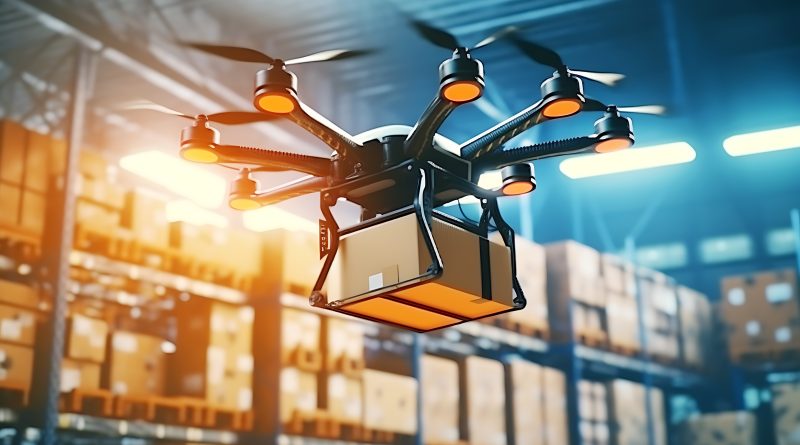The Impact of AI on Autonomous Logistics
Artificial Intelligence (AI) is rapidly transforming the logistics industry, ushering in a new era of autonomous systems. These advancements are not just incremental but represent a fundamental shift in how goods are moved, stored, and managed. Autonomous logistics systems, driven by AI, are set to revolutionize supply chains by enhancing efficiency, reducing costs, and improving overall reliability. This article explores the current applications of AI in logistics, the role of autonomous vehicles and robotics, the challenges and considerations involved, and future predictions for this dynamic field.
Current Applications of AI in Logistics Are Transforming the Industry
AI has already made significant inroads into logistics, with numerous applications enhancing various aspects of the supply chain. AI-powered systems are being used to optimize route planning, manage inventory, and improve demand forecasting. For instance, AI algorithms can analyze vast amounts of data to predict demand patterns, allowing companies to adjust their inventory levels proactively. Additionally, AI is used for real-time tracking and monitoring of shipments, providing end-to-end visibility and helping businesses anticipate and mitigate potential disruptions.
One notable application is predictive maintenance, where AI systems analyze data from sensors embedded in logistics equipment to predict failures before they occur. This proactive approach reduces downtime and extends the lifespan of assets. Furthermore, AI-driven chatbots and virtual assistants are enhancing customer service by providing timely and accurate information to customers, thereby improving satisfaction and loyalty.
Robotics Are Revolutionizing Logistics Operations
The integration of autonomous vehicles and robotics into logistics operations is one of the most exciting developments in the industry. Autonomous delivery trucks and drones are becoming increasingly common, offering solutions for last-mile delivery challenges. These technologies not only reduce labor costs but also improve delivery speed and reliability by circumventing traffic and access issues. Companies like Amazon and UPS are leading the way, with extensive testing and deployment of autonomous delivery systems.
In warehouses, robotics play a crucial role in automating repetitive tasks such as picking, packing, and sorting. Advanced robots equipped with AI and machine learning capabilities can adapt to new tasks and environments, significantly boosting operational efficiency. For example, automated storage and retrieval systems (AS/RS) streamline the storage process by automatically placing and retrieving items from predefined locations, reducing errors and increasing speed.
Considerations in Implementing AI in Logistics
Despite the promising advancements, the adoption of AI and autonomous systems in logistics faces several challenges. Technical issues such as the reliability and accuracy of AI algorithms, integration with existing systems, and the high initial investment costs are significant barriers. Moreover, regulatory challenges related to the operation of autonomous vehicles and drones need to be addressed to ensure safety and compliance.
Ethical considerations also play a vital role. The deployment of AI in logistics raises questions about data privacy, job displacement, and the ethical use of AI technologies. Ensuring that AI systems are transparent, accountable, and do not perpetuate biases is crucial for gaining public trust and regulatory approval. Additionally, there is a need for human oversight to verify AI-generated data and decisions, maintaining a balance between automation and human intervention.
Looking ahead, the future of autonomous logistics is promising, with several trends set to shape the industry. The adoption of autonomous vehicles is expected to increase, driven by advancements in sensor technology and AI. These vehicles will enhance supply chain efficiency, reduce costs, and improve safety. Similarly, the integration of AI and machine learning will continue to grow, offering more sophisticated and adaptive logistics solutions.
Sustainability is another critical area where AI can make a significant impact. By optimizing routes and improving fuel efficiency, AI can help reduce the carbon footprint of logistics operations. Moreover, the use of electric and autonomous vehicles powered by renewable energy sources will further drive sustainability efforts in the industry.
Sources:
- Logistics Automation: Trends and Predictions for 2024: EMB Global
- Supply Chain Trends 2024: The Digital Shake-Up: KPMG
- Eye on the Future – AI in Supply Chains and Logistics: Maersk
- Logistics 2024: Trends & Predictions: CCR-Mag.com
- The Future of Logistics: Trends for 2024: WorldLogisticsPassport
